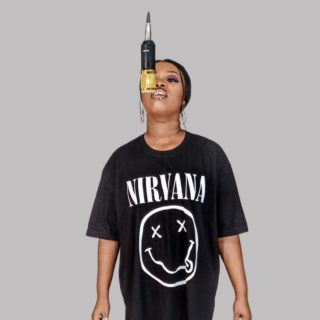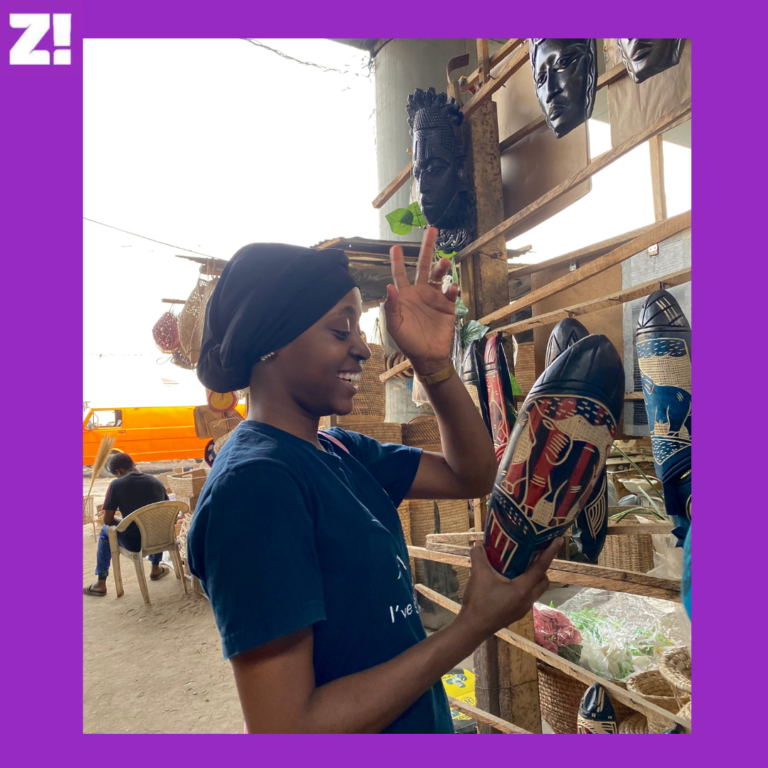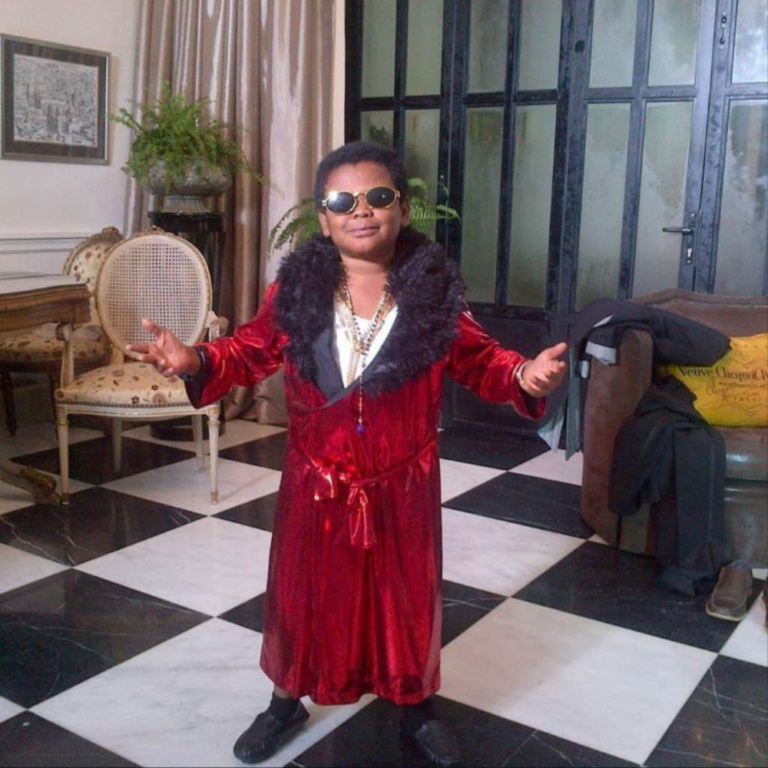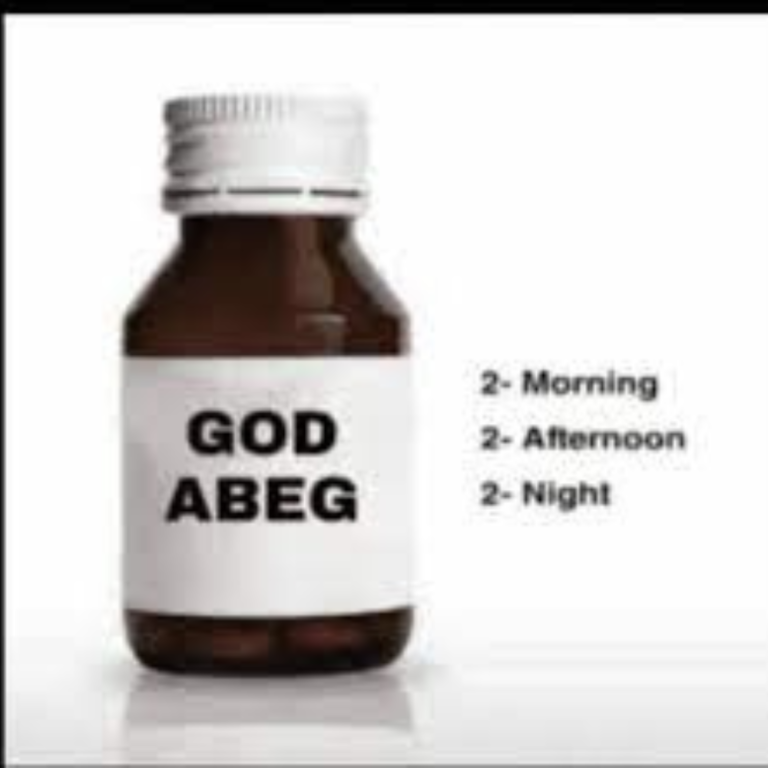Creator Spotlight is a weekly series celebrating young Nigerians in the creative industry doing unique things. Everyone has a story, and Zikoko wants to tell it.
Alexandra classifies herself as a multidisciplinary artist. She is a self-taught artist, who’s into photography, makeup, styling and creative direction. She’s also a content creator and influencer on Instagram. She loves everything about beauty, fashion and lifestyle. She champions conversations around respecting plus-size women and queer people. Fun fact: she can’t stand honey.
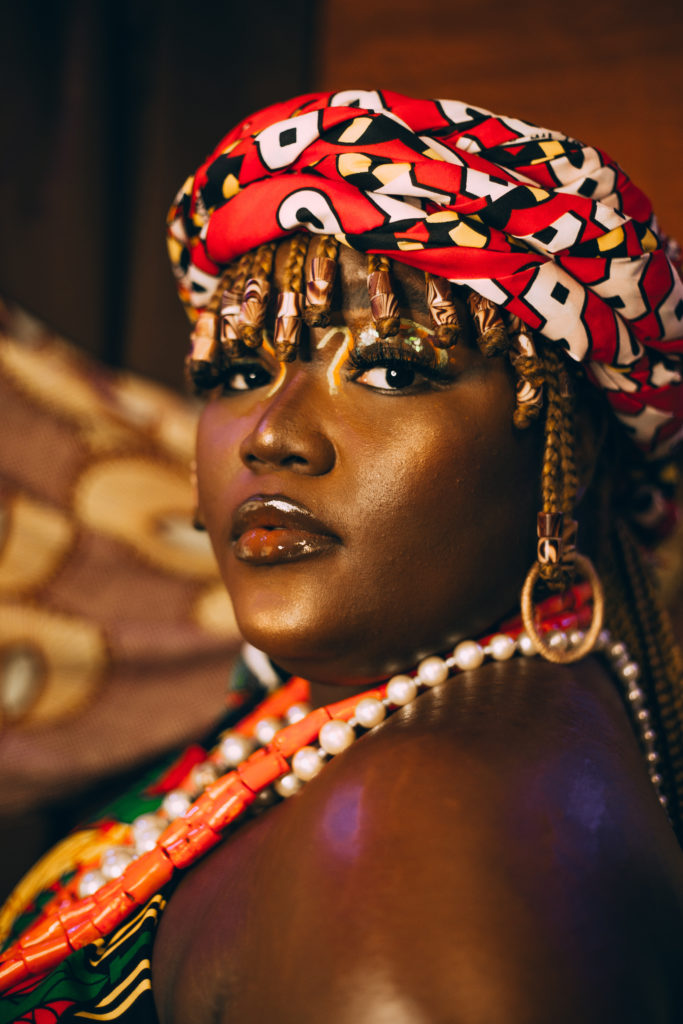
Which art form caught your interest first?
My interest in the creative industry began in 2016. I had just entered university, and my mum made me learn a skill — makeup. Even though I felt lazy about it at the time, I’m grateful for that now. I ended up loving it and it became a side hustle for me in school from 2016 to 2018. I started doing collaborations and working with other creatives, and I used to call myself the collaboration queen. I did that until I graduated in 2019. At the height of COVID, I started taking pictures and editing them with my phone at home till 2021 when my parents gifted me a camera. Then I started calling myself a photographer. Since I’d had a year’s practice, I felt like I knew what I was doing, but now, I realise I was doing rubbish. But A for effort.
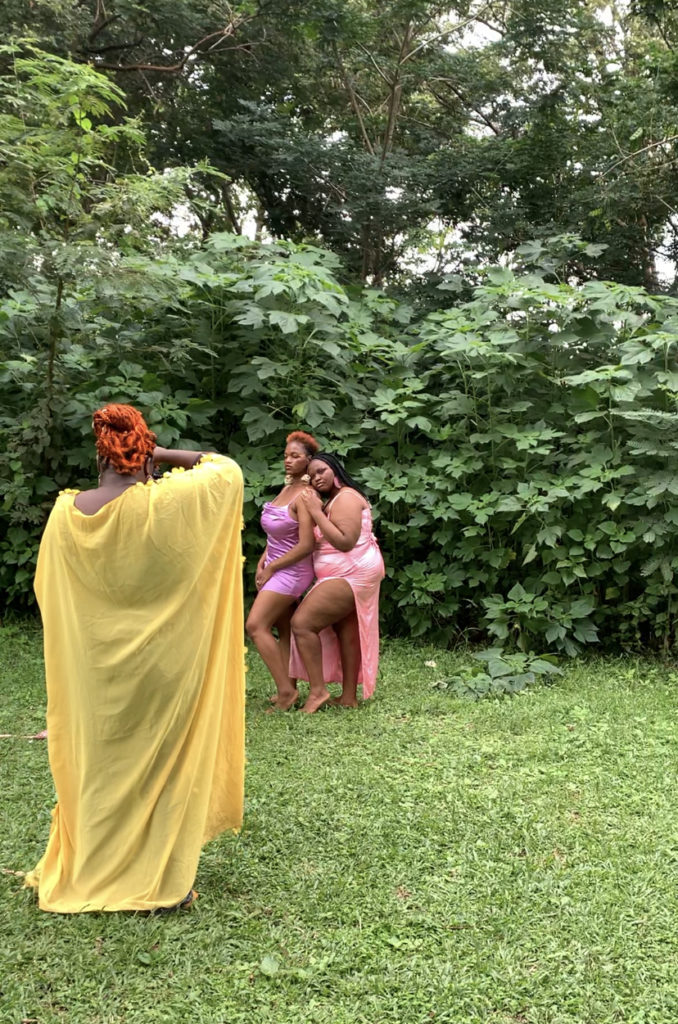
How did you convince your parents to get you a camera?
My little brother, Zim, is a model. He became a meme when he was three, and it got him a lot of attention on Instagram in 2020. My ex used to take his pictures, but then, we fell out and having no one to do it pushed me to take photography seriously. Because of this, my parents didn’t mind getting me my first camera from the money we had made from Zim’s modelling.
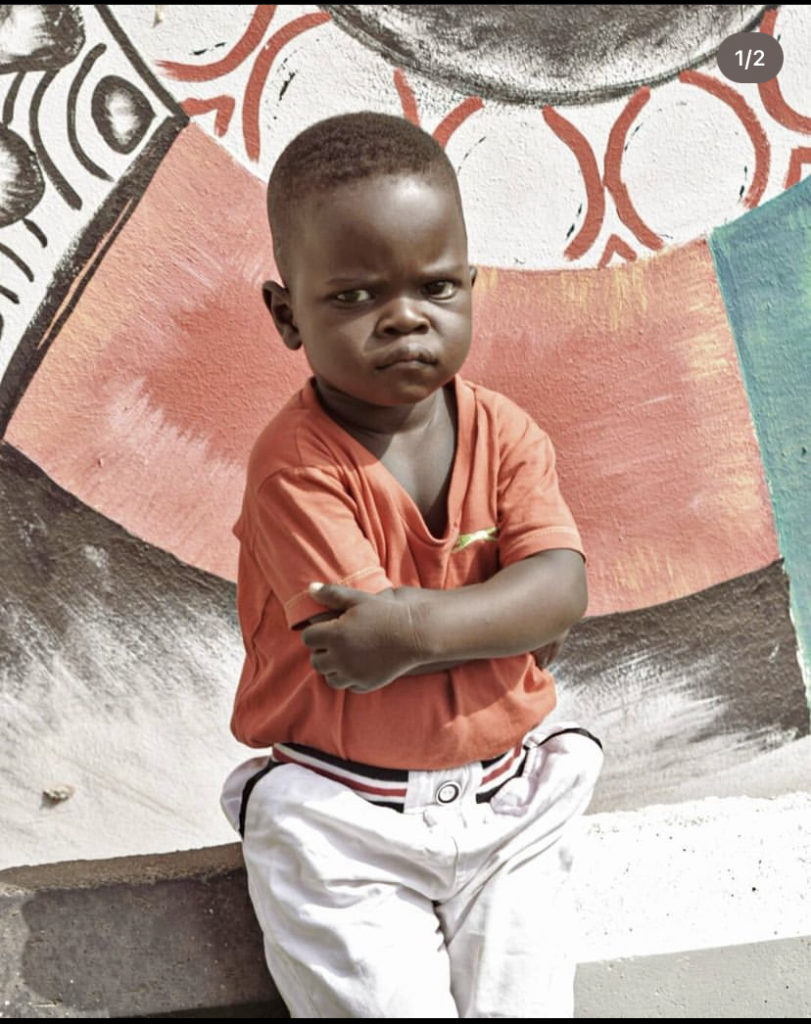
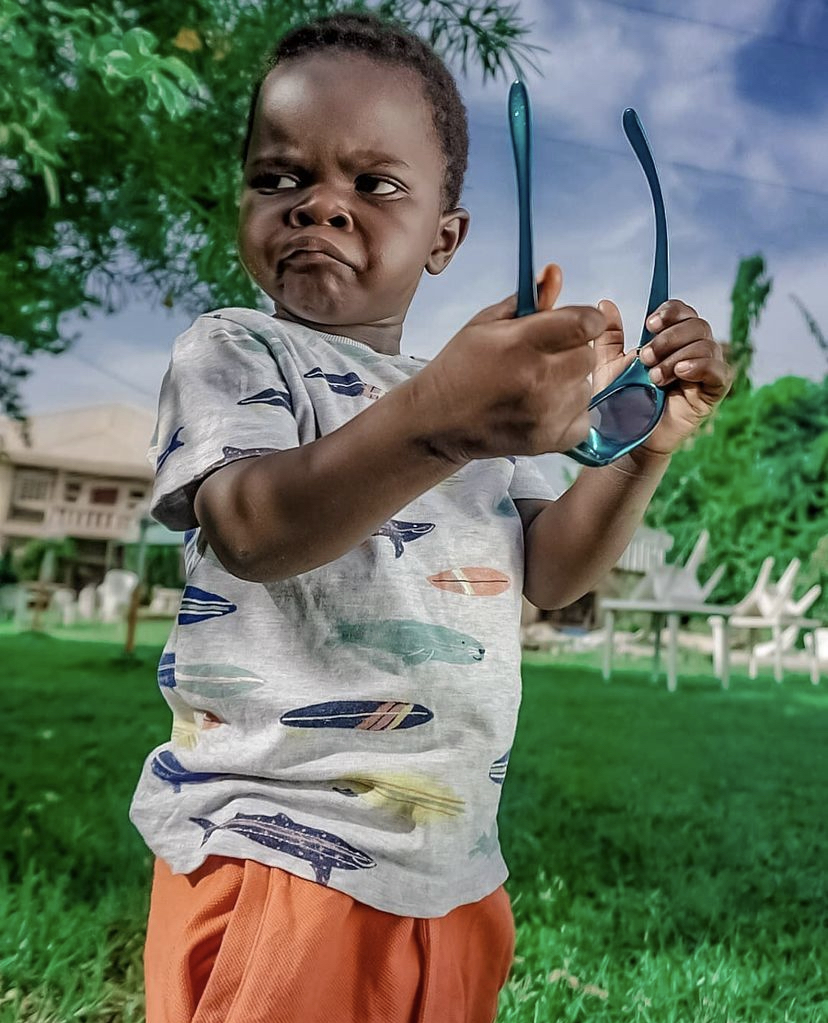
Is he easy to work with?
He’s tough to work with because he’s a child. If you didn’t give him what he wanted, he’d throw tantrums, and when he agreed to take pictures, he’d be so angry that he made faces. Fortunately, his frowning face was his selling point. But he’s getting better as he grows. Hopefully, next year, I’ll focus more on him.
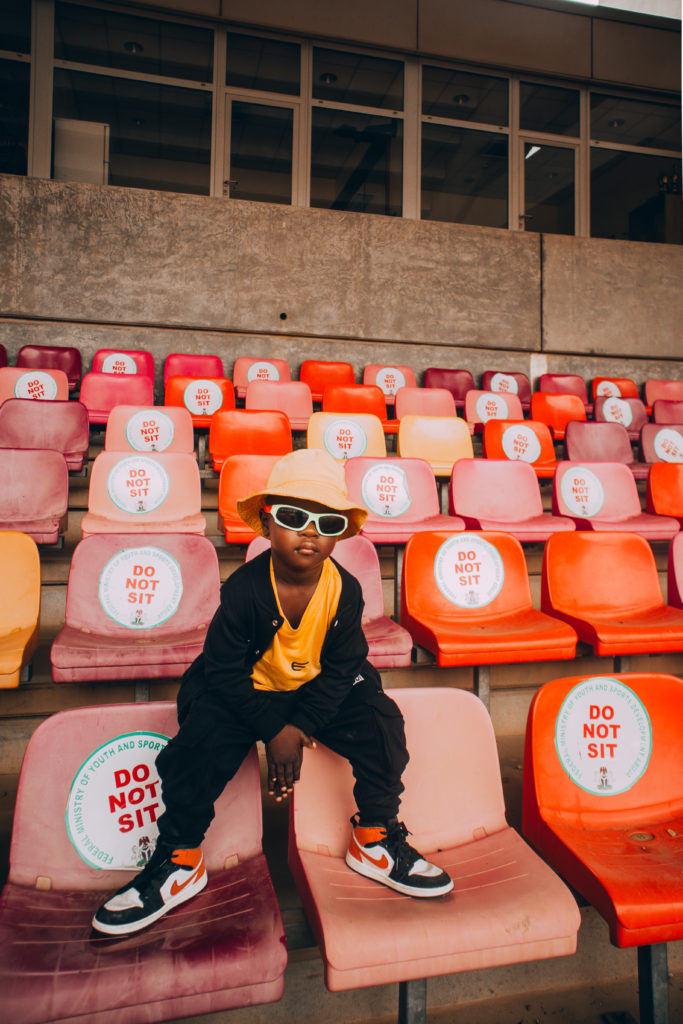
How did you get gigs when you started?
Even after my makeup classes in school, I kept practising until I got good and could confidently charge people like ₦1000 – 1,500 for it. People got to know me through word of mouth. My makeup was always colourful. In many ways, my identity has always influenced my art, even before I knew I was queer. I always do things differently, I would do editorial-style makeup and use graphic liners before it got popular, and that attracted people to work with me.
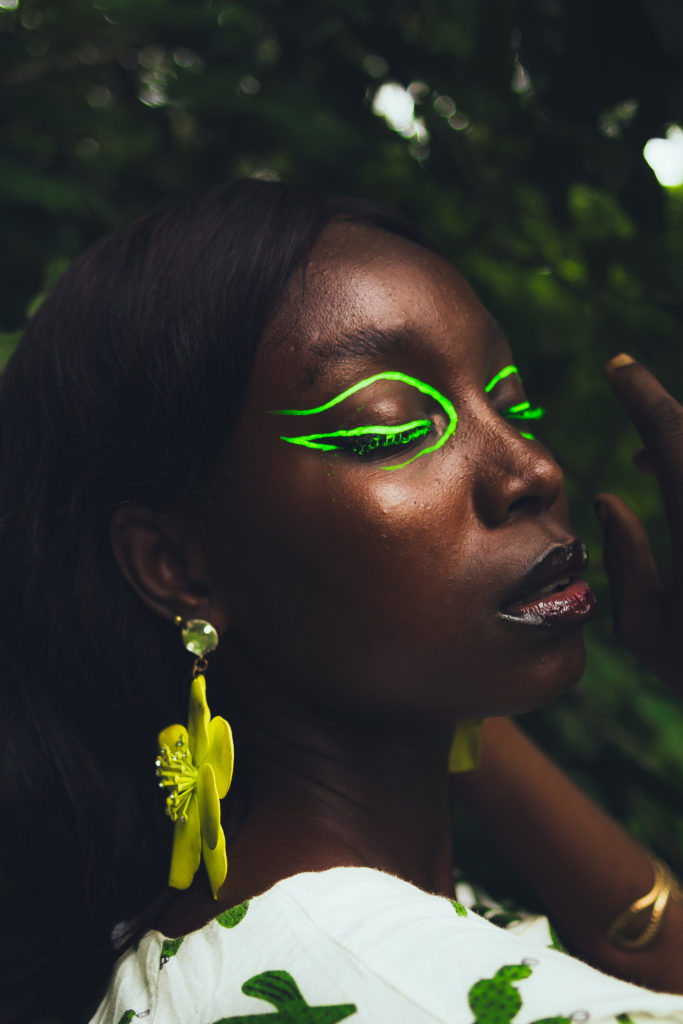
What was your first project?
In 2021, I worked on my first project as a photographer to celebrate and document Nigerian queer and non-binary people. With that project, I wanted to create representation on social and mainstream media. My thought was simple; if I had seen someone doing what I did when i thought I was straight in 2018-2019, maybe I’d have realised sooner that I was queer. I wanted younger people who were struggling with their sexuality to relate to my art. I wanted them to see themselves through it.
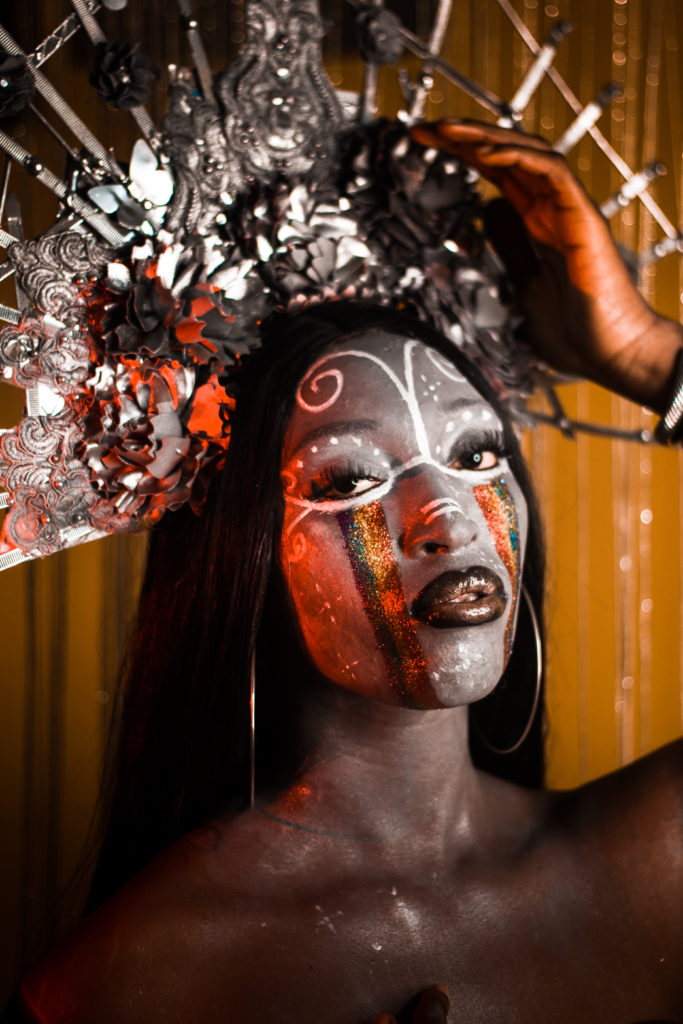
How come you hadn’t met any queer person before then?
I have a lot of ambition, which blinds me to life’s romantic side. I was too busy focusing on my dreams and goals to think of a relationship, so I didn’t realize I was queer until 2019. I’d never met a queer person until I met my ex-girlfriend during a photo shoot, and it was like something clicked in my head. I also take my time photographing fat people because of fatphobia and body shaming, which I’d been a victim of all my life.
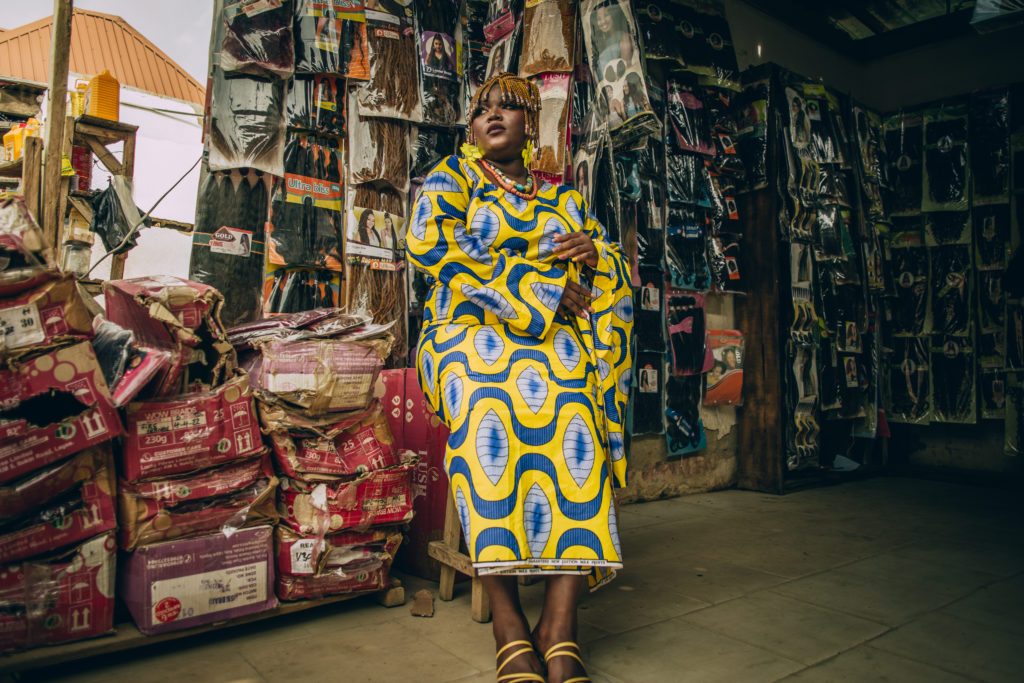
Should this be a “love life” conversation?
Oh, please, that relationship didn’t last. It was less about the person and more about me coming to a realisation.
How did you meet queer people to work with?
My partner introduced me to her friends, who introduced me to their friends, and that’s how my circle widened. Social media is a big game changer too. My art also draws people. It resonates with many queer people, so that’s how I got to meet them, even though it’s hard to photograph them because of the fear of homophobia. The project eventually had to pause because of that, and I’ve taken the time to apply for grants to travel around and photograph more queer people. I haven’t received any yet.
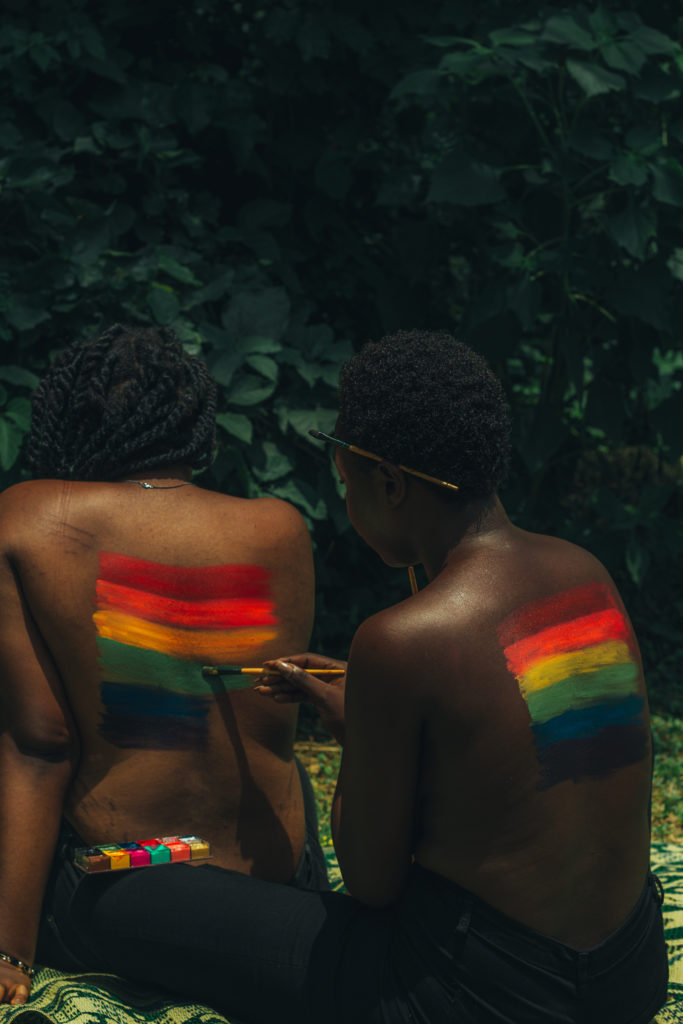
Has anyone ever asked for their pictures to be taken down?
Of course. I get their consent beforehand, but I’ve had issues with people getting in trouble with their parents, and when they ask me to take it down, I do. It’s okay because I understand the struggle. As annoying as it can be to work on something and hide it, I know it’s not their fault, and there’s not much I can do about it. But I always tell them I’ll leave it as part of my portfolio, and they usually agree. Photography has changed my life and how I look at things.
How?
I’ve achieved so much in such a short time. I wanted to get a MacBook, a new phone and a camera, and I have. And it’s all because I took photography and NFT seriously. I’m always ready to work hard and explore as much as possible when it comes to my passion, so I can’t wait to see what happens next.
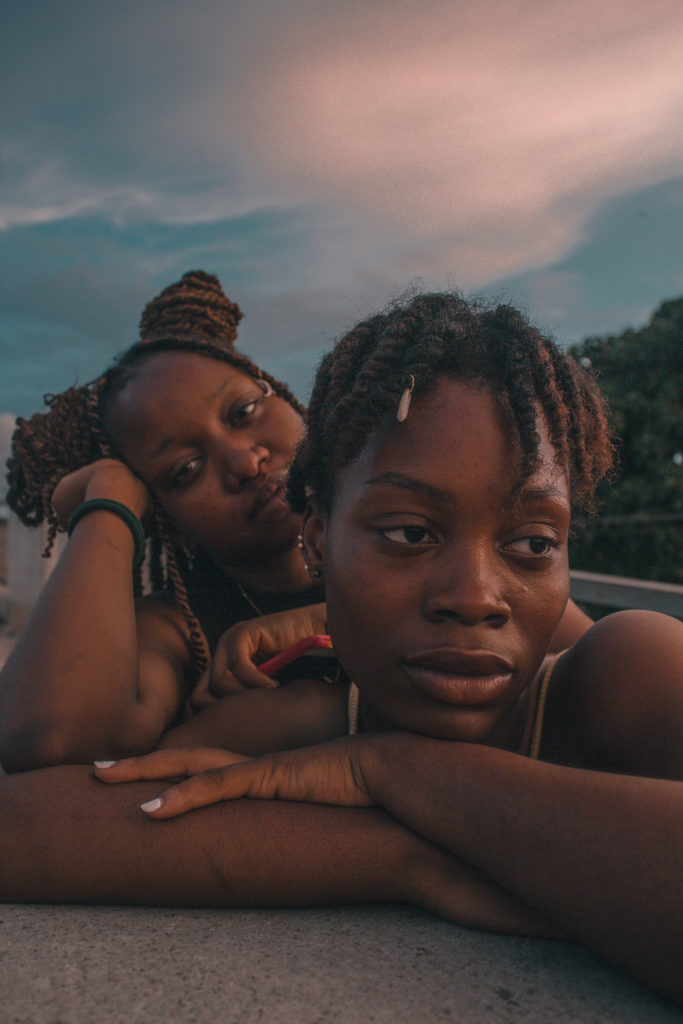
Did you get a lot of money from creating NFTs?
Not a lot of money. About 600-700$. It was a lot of money to me when it came in earlier this year, but I’ve made more since, so it’s not a lot anymore. The collection was one of my first queer shoots called “Colours of Love”. It’s so dear to my heart, and the pictures still stun me. It was so timely. After all, I was broke, anxious and depressed because I was almost done with NYSC and didn’t have anything to do. That sale was like a catalyst for two other deals I got, and it was just amazing.
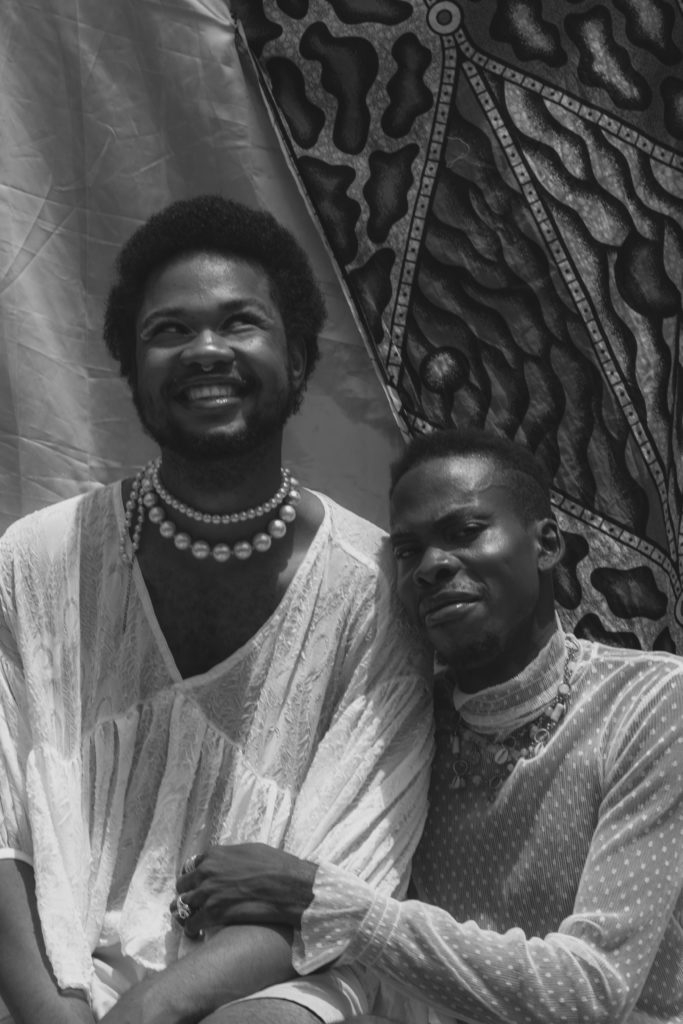
Your art was displayed in Times Square New York. How did that feel?
Oh yes! It wasn’t even something from the queer series. It was from a collection I titled “Tribe”; a lot of my art is inspired by my culture. It was a picture of three guys. They had face paint and were wearing these wrappers.
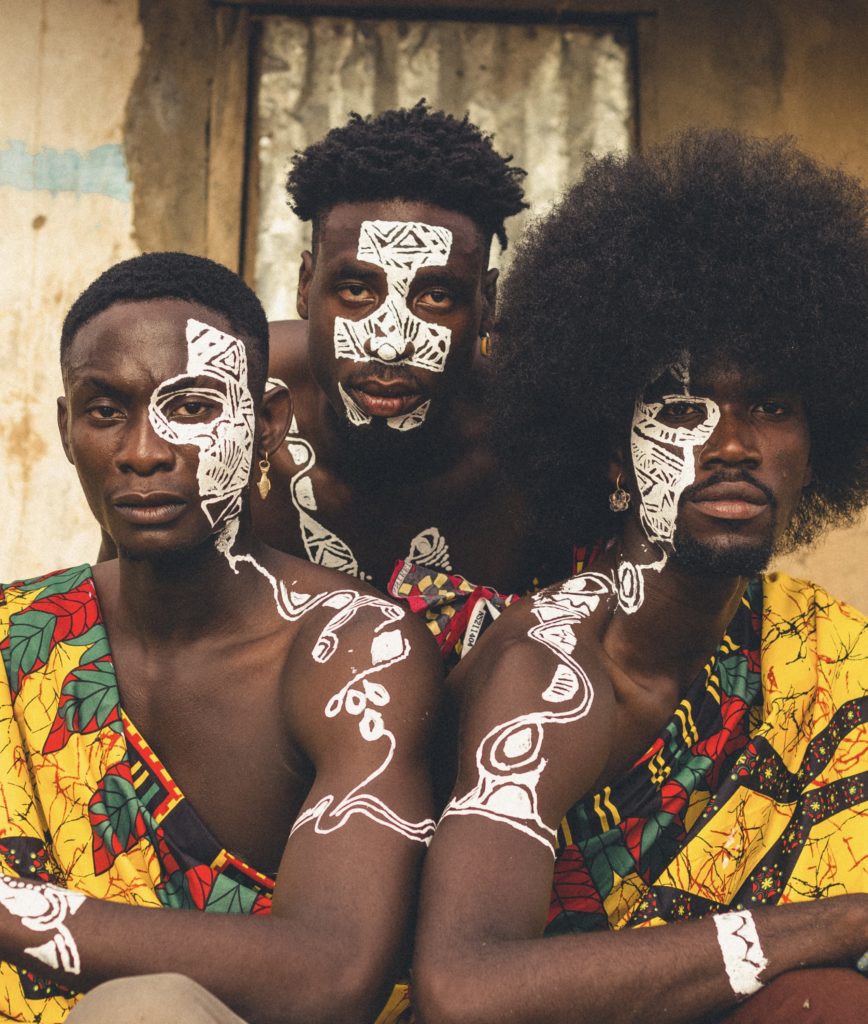
What’s been your favourite project?
I believe “Celebrating Queers “ will always be my number one because it’s for my community and tribe. Right now, I’m working on a project called “Black Men Journal”, a series to celebrate black and African men. I’m also hoping to start a new project next year. I don’t know what I’ll call it yet, but it’ll be something along the lines of “the relationship between a mother and a child”.
Do you compensate your models?
Most of my creative shorts are collaborations, so I just end up paying for transportation and maybe outfits, if I can. Sometimes, we don’t even have time to buy food, but there’s always water or drinks, and it’s just because by the time we’re done, everyone’s tired and just wants to go home. So like ₦15-20k, depending on the shoot location.
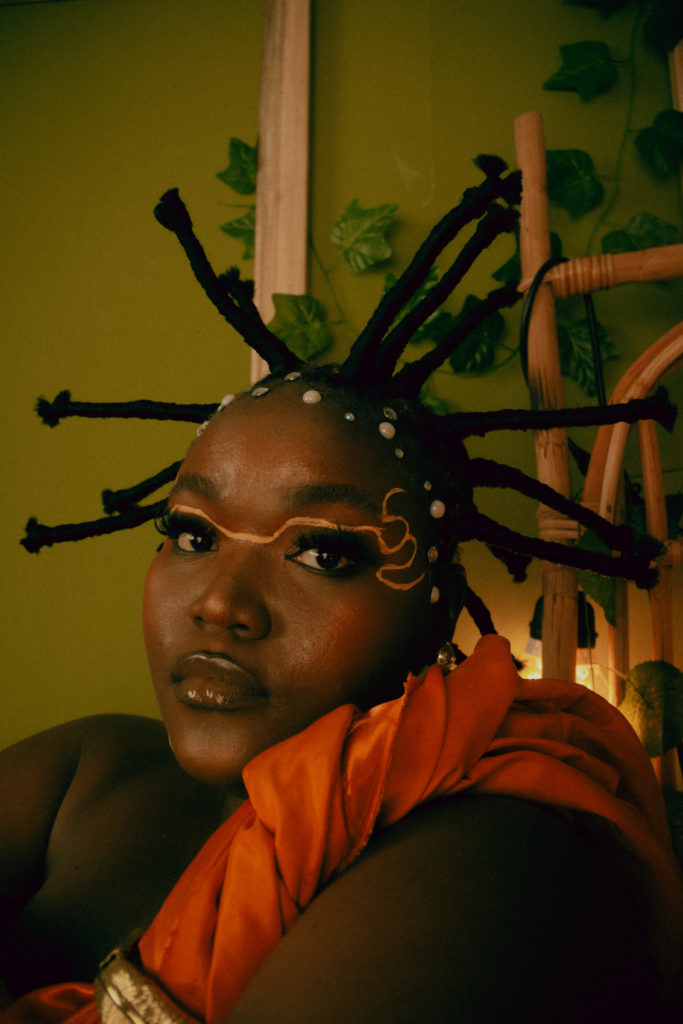
Where does the money come from?
I do social media management on the side, but I quit my last one last month because it wasn’t for me. My art funds my art most times. I’m not where I want to be, but this year has been good, and I’m grateful. My dream is to live off my art one day.
What are your biggest struggles as an artist?
Being a queer person in Nigeria is struggle enough. There’s always some homophobe in every space. You might be the best, and people would still undermine your work because of where you come from. And Nigerians don’t value or support talent, so that’s a struggle. I just love what I do; my passion is my inspiration to show up every day. I’m way past homophobia and all that.
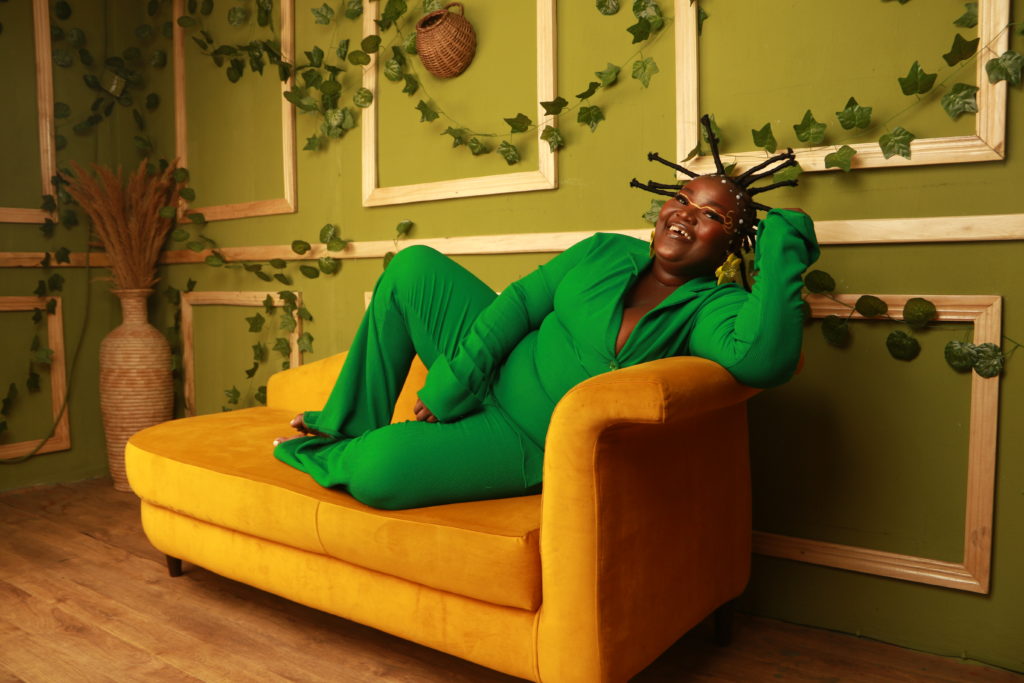
Who’s the biggest influence on your work?
It’s less of who and more of what. The answer is my lifestyle, sexuality and culture; those are my biggest inspirations, and you can see those clearly in my art form.
What should we expect from you in the next couple of years?
Hopefully, my creative studio. Not just for photography, but also makeup content creation and other things. I’m really interested in film, and I’ll get to it as soon as I settle down to learn properly.
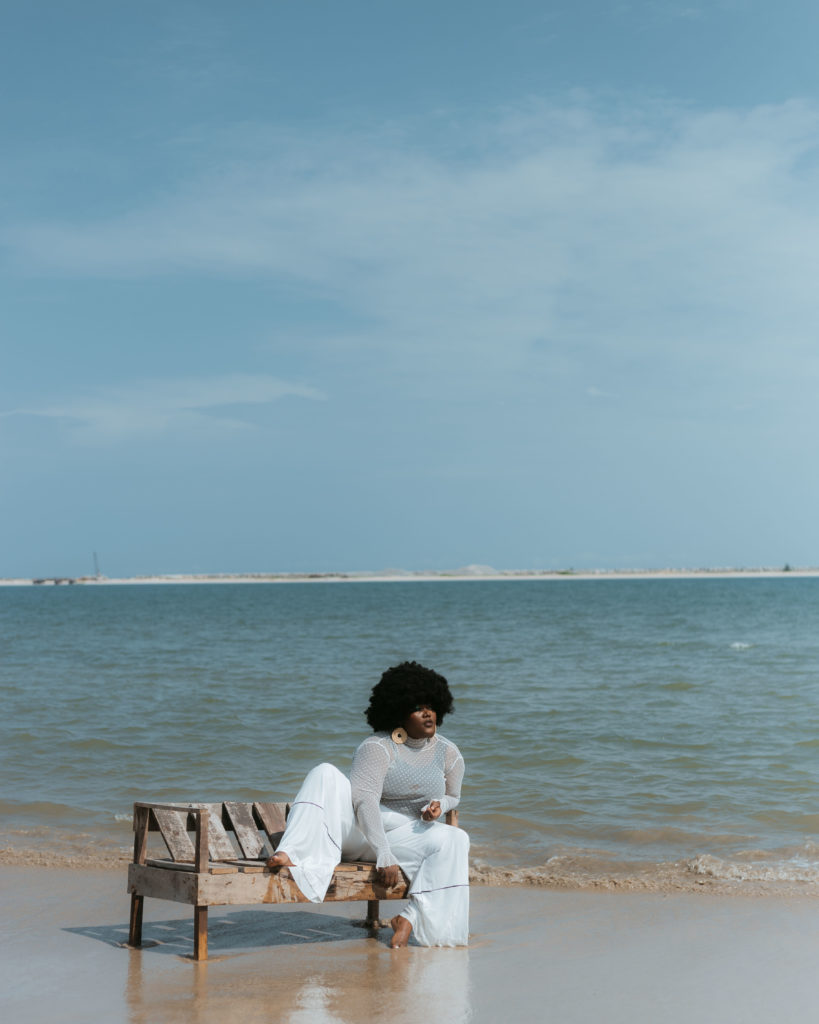
Would you like to share any words of wisdom with fellow creatives?
Do your thing as differently as possible. It’ll be hard sometimes, but if you’re really passionate about it, go for it with all your heart. Always put yourself first, especially when it comes to your art form, because nobody has the power to tell you what art should be. Only artists can choose what their art should be.
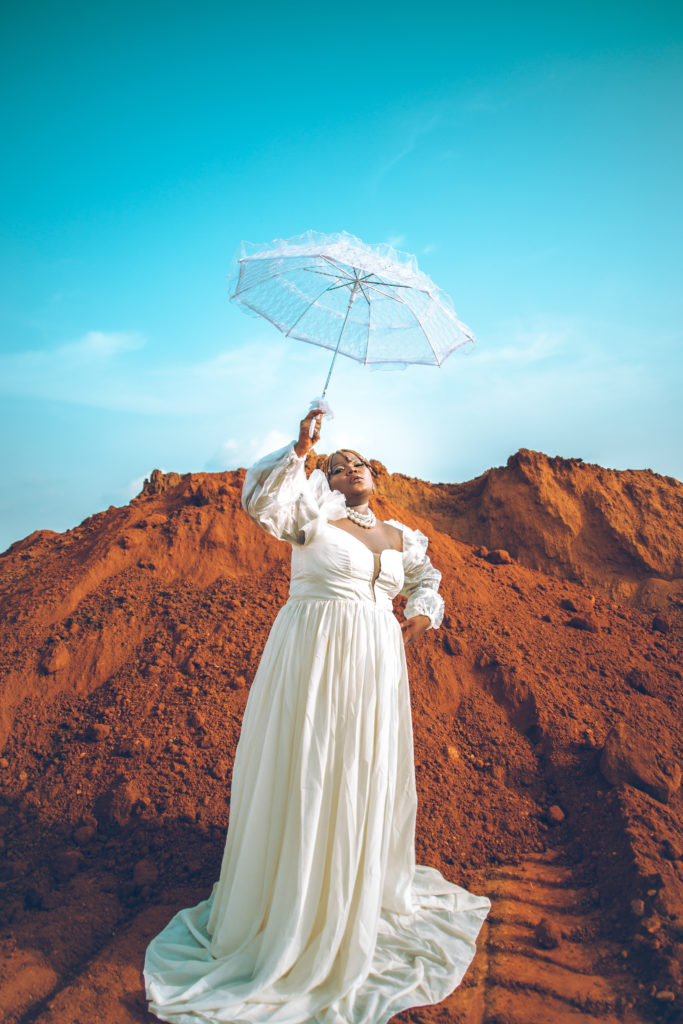
RELATED: Creator Spotlight: Healthy Living Is Cheap and Possible in Nigeria; Just Ask Fareedah

